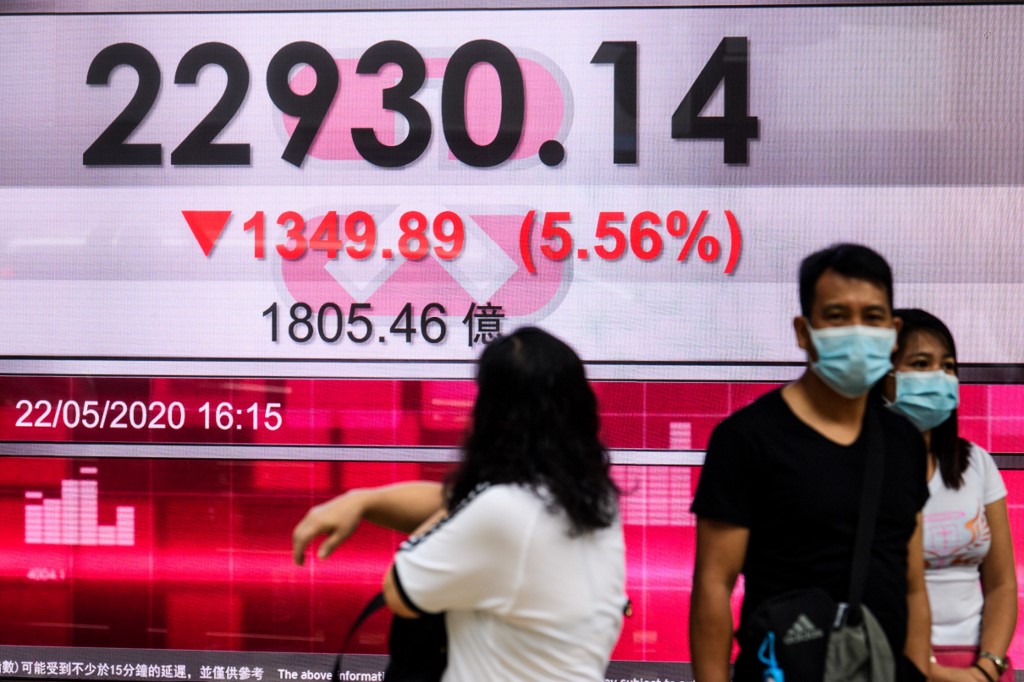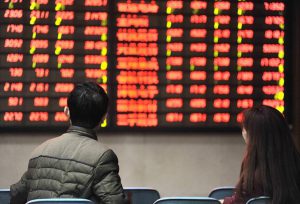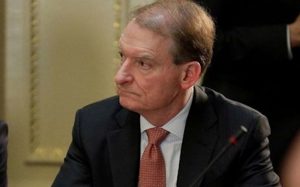Hong Kong’s most active exchange-traded fund (ETF), the Tracker Fund of Hong Kong (TraHK), has reversed a decision to stop buying shares in Chinese firms sanctioned by the US after some called for the fund’s manager, State Street Global Advisors Asia, to be replaced.
In an exchange filing on Wednesday, State Street said the ETF – with HK$103 billion ($13.3 billion) in managed assets – would resume buying the shares on Thursday, but added that “as a result of the Executive Order, TraHK is not appropriate for US persons to invest”.
A spokeswoman from the State Street Corp unit that manages the TraHK said the exchange-traded fund, which tracks the benchmark Hang Seng Index, is able to invest in the securities because neither it nor manager State Street Global Advisors Asia are “US persons”.
Read more: EV sector fast-tracked by green recovery
“We appreciate the significant public interest given the importance of TraHK to the Hong Kong markets and hope that the resumption confirms our commitment to track the Hang Seng Index for TraHK as we have done for the past 21 years,” State Street said.
This marked a reversal from an exchange filing two days earlier, in which State Street said the ETF would, effective immediately, no longer invest in companies that the US has blacklisted for alleged ties to the Chinese military.
This would mean that China Mobile, China Unicom and CNOOC – all on the blacklist by the US Department of Treasury’s Office of Foreign Assets Control (OFAC) and constituents of the Hang Seng Index – would be removed from the fund’s investment scope.
A November order by the Trump administration banned Americans from investing in Chinese firms on the OFAC’s list, with effect from Monday.
BANNED SECURITIES
The initial decision by TraHK to stop investing in the banned securities sparked anger from some investors, who feared the fund would be unable to track the benchmark effectively. Some called for State Street to be replaced as manager by a company that could invest in the stocks.
Hong Kong leader Carrie Lam said on Tuesday that the Hong Kong Monetary Authority (HKMA) has the power to appoint a different firm to manage TraHK, to safeguard the interests of retail investors and pensioners.
Cabinet member and former HKMA chief executive Joseph Yam Chi-kwong, who introduced TraHK in 1999, has also voiced his support of a change of manager.
An HKMA spokesperson told ATF that announcements made by State Street in the past couple of days have “created unnecessary market uncertainties” although they did not cause substantial impact on investors of the Tracker Fund.
CLOSE WATCH
“The HKMA has since followed up on the matter in close contact and communication with the Tracker Fund Supervisory Committee and State Street”, the HKMA spokesperson said, adding that HKMA has noted the latest developments and will “continue to keep a close watch over the matter”.
The plight faced by Hong Kong’s tracker fund has become the latest example of how major market players have found themselves caught between Beijing and Washington as the effects of Trump’s move to ban US investments in Chinese companies with military links continue to reverberate.
The New York Stock Exchange made U-turns twice in seven days last week because of uncertainty whether US-listed shares in China’s three telecom operators were covered by the executive order.
DELISTING MOVE
It first said it would delist the American Depositary Receipts of the three entities, then said it would keep them listed, citing an OFAC clarification, before finally confirming it would delist them.
Other US fund managers have already started selling down their stakes in the companies included in the ban, including Vanguard, BlackRock and Goldman Sachs.
Goldman, Morgan Stanley and JPMorgan Chase have also indicated they plan to delist 500 Hong Kong-listed structured products as a result of US ban.
TraHK, which is popular with Hong Kong retail investors and pension funds, was set up in 1998 by the Hong Kong government to dispose of shares it had bought in market interventions during the Asian financial crisis. It listed in 1999.
























